The Poison Belt (1)
By:
April 17, 2012
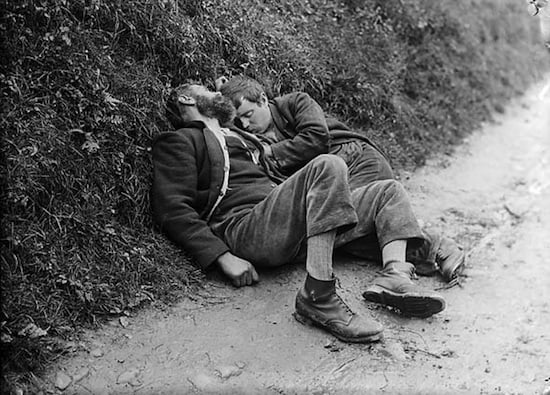
HILOBROW is pleased to present the first installment of our serialization of Arthur Conan Doyle’s The Poison Belt. New installments will appear each Tuesday for 12 weeks.
If you alone had discovered that the Earth was about to be engulfed in a belt of poisonous “ether” from outer space, what would you do? Professor Challenger, a controversial scientist whose intellectual sprezzatura may remind you of Arthur Conan Doyle’s more famous fictional detective character, assembles the adventurers with whom he’d once romped through a South American jungle (in The Lost World, published in 1912) and locks them in his wife’s dressing room. Less a thriller than a brainteaser set against a catastrophic backdrop, in this 1913 sequel Challenger & Co. inquire into the method of the mind, and the relationship of intuition to reason, even as the world ends.
“To anyone who has had the delightful experience of traveling in The Lost World with Professor Challenger the bare announcement that that brilliant and eccentric personage plays a most important part in this new tale will quite suffice. For who, having once met the Professor, would not desire to continue the acquaintance?” — New York Times (1913).
“It’s impossible to read The Poison Belt, written in 1913, and not see in its exterminating vision a shadow of the coming war that would, only slightly less effectively, destroy Conan Doyle’s world.” — Gordon Dahlquist (2012 blurb for HiLoBooks)
In July, HiLoBooks will publish a beautiful new edition of The Poison Belt, with an introduction by Radium Age science fiction scholar (and HiLobrow editor) Joshua Glenn. Afterword by Gordon Dahlquist, author of The Glass Books of the Dream Eaters, The Dark Volume, and the forthcoming The Chemickal Marriage.
SUBSCRIBE to HILOBROW’s serialized fiction via RSS.
ALL EXCERPTS: 1 | 2 | 3 | 4 | 5 | 6 | 7 | 8 | 9 | 10 | 11 | 12
THE BLURRING OF LINES
It is imperative that now at once, while these stupendous events are still clear in my mind, I should set them down with that exactness of detail which time may blur. But even as I do so, I am overwhelmed by the wonder of the fact that it should be our little group of the “Lost World”—Professor Challenger, Professor Summerlee, Lord John Roxton, and myself — who have passed through this amazing experience.
When, some years ago, I chronicled in the Daily Gazette our epoch-making journey in South America, I little thought that it should ever fall to my lot to tell an even stranger personal experience, one which is unique in all human annals and must stand out in the records of history as a great peak among the humble foothills which surround it. The event itself will always be marvellous, but the circumstances that we four were together at the time of this extraordinary episode came about in a most natural and, indeed, inevitable fashion. I will explain the events which led up to it as shortly and as clearly as I can, though I am well aware that the fuller the detail upon such a subject the more welcome it will be to the reader, for the public curiosity has been and still is insatiable.
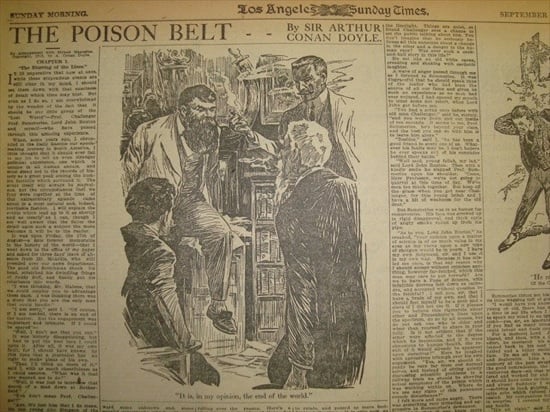
It was upon Friday, the twenty-seventh of August — a date forever memorable in the history of the world — that I went down to the office of my paper and asked for three days’ leave of absence from Mr. McArdle, who still presided over our news department. The good old Scotchman shook his head, scratched his dwindling fringe of ruddy fluff, and finally put his reluctance into words.
“I was thinking, Mr. Malone, that we could employ you to advantage these days. I was thinking there was a story that you are the only man that could handle as it should be handled.”
“I am sorry for that,” said I, trying to hide my disappointment. “Of course if I am needed, there is an end of the matter. But the engagement was important and intimate. If I could be spared —”
“Well, I don’t see that you can.”
It was bitter, but I had to put the best face I could upon it. After all, it was my own fault, for I should have known by this time that a journalist has no right to make plans of his own.
“Then I’ll think no more of it,” said I with as much cheerfulness as I could assume at so short a notice. “What was it that you wanted me to do?”
“Well, it was just to interview that deevil of a man down at Rotherfield.”
“You don’t mean Professor Challenger?” I cried.
“Aye, it’s just him that I do mean. He ran young Alec Simpson of the Courier a mile down the high road last week by the collar of his coat and the slack of his breeches. You’ll have read of it, likely, in the police report. Our boys would as soon interview a loose alligator in the zoo. But you could do it, I’m thinking — an old friend like you.”
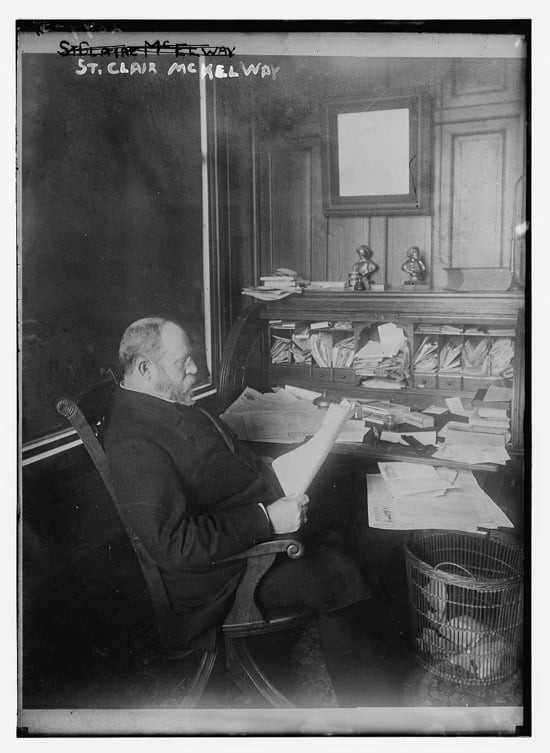
“Why,” said I, greatly relieved, “this makes it all easy. It so happens that it was to visit Professor Challenger at Rotherfield that I was asking for leave of absence. The fact is, that it is the anniversary of our main adventure on the plateau three years ago, and he has asked our whole party down to his house to see him and celebrate the occasion.”
“Capital!” cried McArdle, rubbing his hands and beaming through his glasses. “Then you will be able to get his opeenions out of him. In any other man I would say it was all moonshine, but the fellow has made good once, and who knows but he may again!”
“Get what out of him?” I asked. “What has he been doing?”
“Haven’t you seen his letter on ‘Scientific Possibeelities’ in to-day’s Times?”
“No.”
McArdle dived down and picked a copy from the floor.
“Read it aloud,” said he, indicating a column with his finger. “I’d be glad to hear it again, for I am not sure now that I have the man’s meaning clear in my head.”
This was the letter which I read to the news editor of the Gazette:—
“SIR,—I have read with amusement, not wholly unmixed with some less complimentary emotion, the complacent and wholly fatuous letter of James Wilson MacPhail which has lately appeared in your columns upon the subject of the blurring of Frauenhofer’s lines in the spectra both of the planets and of the fixed stars. He dismisses the matter as of no significance. To a wider intelligence it may well seem of very great possible importance — so great as to involve the ultimate welfare of every man, woman, and child upon this planet. I can hardly hope, by the use of scientific language, to convey any sense of my meaning to those ineffectual people who gather their ideas from the columns of a daily newspaper. I will endeavour, therefore, to condescend to their limitation and to indicate the situation by the use of a homely analogy which will be within the limits of the intelligence of your readers.”
“Man, he’s a wonder — a living wonder!” said McArdle, shaking his head reflectively. “He’d put up the feathers of a sucking-dove and set up a riot in a Quakers’ meeting. No wonder he has made London too hot for him. It’s a peety, Mr. Malone, for it’s a grand brain! We’ll let’s have the analogy.”
“We will suppose,” I read, “that a small bundle of connected corks was launched in a sluggish current upon a voyage across the Atlantic. The corks drift slowly on from day to day with the same conditions all round them. If the corks were sentient we could imagine that they would consider these conditions to be permanent and assured. But we, with our superior knowledge, know that many things might happen to surprise the corks. They might possibly float up against a ship, or a sleeping whale, or become entangled in seaweed. In any case, their voyage would probably end by their being thrown up on the rocky coast of Labrador. But what could they know of all this while they drifted so gently day by day in what they thought was a limitless and homogeneous ocean?
“Your readers will possibly comprehend that the Atlantic, in this parable, stands for the mighty ocean of ether through which we drift and that the bunch of corks represents the little and obscure planetary system to which we belong. A third-rate sun, with its rag tag and bobtail of insignificant satellites, we float under the same daily conditions towards some unknown end, some squalid catastrophe which will overwhelm us at the ultimate confines of space, where we are swept over an etheric Niagara or dashed upon some unthinkable Labrador. I see no room here for the shallow and ignorant optimism of your correspondent, Mr. James Wilson MacPhail, but many reasons why we should watch with a very close and interested attention every indication of change in those cosmic surroundings upon which our own ultimate fate may depend.”
“Man, he’d have made a grand meenister,” said McArdle. “It just booms like an organ. Let’s get doun to what it is that’s troubling him.”
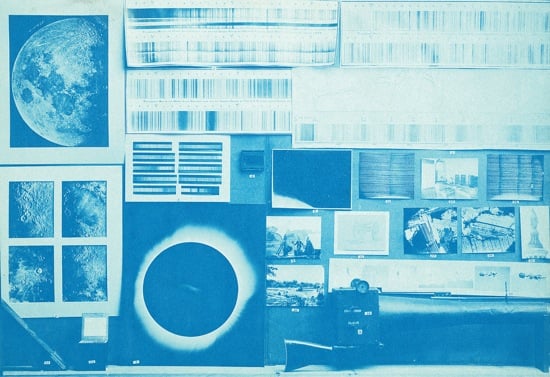
“The general blurring and shifting of Frauenhofer’s lines of the spectrum point, in my opinion, to a widespread cosmic change of a subtle and singular character. Light from a planet is the reflected light of the sun. Light from a star is a self-produced light. But the spectra both from planets and stars have, in this instance, all undergone the same change. Is it, then, a change in those planets and stars? To me such an idea is inconceivable. What common change could simultaneously come upon them all? Is it a change in our own atmosphere? It is possible, but in the highest degree improbable, since we see no signs of it around us, and chemical analysis has failed to reveal it. What, then, is the third possibility? That it may be a change in the conducting medium, in that infinitely fine ether which extends from star to star and pervades the whole universe. Deep in that ocean we are floating upon a slow current. Might that current not drift us into belts of ether which are novel and have properties of which we have never conceived? There is a change somewhere. This cosmic disturbance of the spectrum proves it. It may be a good change. It may be an evil one. It may be a neutral one. We do not know. Shallow observers may treat the matter as one which can be disregarded, but one who like myself is possessed of the deeper intelligence of the true philosopher will understand that the possibilities of the universe are incalculable and that the wisest man is he who holds himself ready for the unexpected. To take an obvious example, who would undertake to say that the mysterious and universal outbreak of illness, recorded in your columns this very morning as having broken out among the indigenous races of Sumatra, has no connection with some cosmic change to which they may respond more quickly than the more complex peoples of Europe? I throw out the idea for what it is worth. To assert it is, in the present stage, as unprofitable as to deny it, but it is an unimaginative numskull who is too dense to perceive that it is well within the bounds of scientific possibility.
“Yours faithfully,
“GEORGE EDWARD CHALLENGER.
“THE BRIARS, ROTHERFIELD.”
“It’s a fine, steemulating letter,” said McArdle thoughtfully, fitting a cigarette into the long glass tube which he used as a holder. “What’s your opeenion of it, Mr. Malone?”
I had to confess my total and humiliating ignorance of the subject at issue. What, for example, were Frauenhofer’s lines? McArdle had just been studying the matter with the aid of our tame scientist at the office, and he picked from his desk two of those many-coloured spectral bands which bear a general resemblance to the hat-ribbons of some young and ambitious cricket club. He pointed out to me that there were certain black lines which formed crossbars upon the series of brilliant colours extending from the red at one end through gradations of orange, yellow, green, blue, and indigo to the violet at the other.
“Those dark bands are Frauenhofer’s lines,” said he. “The colours are just light itself. Every light, if you can split it up with a prism, gives the same colours. They tell us nothing. It is the lines that count, because they vary according to what it may be that produces the light. It is these lines that have been blurred instead of clear this last week, and all the astronomers have been quarreling over the reason. Here’s a photograph of the blurred lines for our issue to-morrow. The public have taken no interest in the matter up to now, but this letter of Challenger’s in the Times will make them wake up, I’m thinking.”
“And this about Sumatra?”
“Well, it’s a long cry from a blurred line in a spectrum to a sick nigger in Sumatra. And yet the chiel has shown us once before that he knows what he’s talking about. There is some queer illness down yonder, that’s beyond all doubt, and to-day there’s a cable just come in from Singapore that the lighthouses are out of action in the Straits of Sudan, and two ships on the beach in consequence. Anyhow, it’s good enough for you to interview Challenger upon. If you get anything definite, let us have a column by Monday.”
I was coming out from the news editor’s room, turning over my new mission in my mind, when I heard my name called from the waiting-room below. It was a telegraph-boy with a wire which had been forwarded from my lodgings at Streatham. The message was from the very man we had been discussing, and ran thus:—
“Malone, 17, Hill Street, Streatham.—Bring oxygen.—CHALLENGER.”
“Bring oxygen!” The Professor, as I remembered him, had an elephantine sense of humour capable of the most clumsy and unwieldy gambollings. Was this one of those jokes which used to reduce him to uproarious laughter, when his eyes would disappear and he was all gaping mouth and wagging beard, supremely indifferent to the gravity of all around him? I turned the words over, but could make nothing even remotely jocose out of them. Then surely it was a concise order — though a very strange one. He was the last man in the world whose deliberate command I should care to disobey. Possibly some chemical experiment was afoot; possibly ——Well, it was no business of mine to speculate upon why he wanted it. I must get it. There was nearly an hour before I should catch the train at Victoria. I took a taxi, and having ascertained the address from the telephone book, I made for the Oxygen Tube Supply Company in Oxford Street.
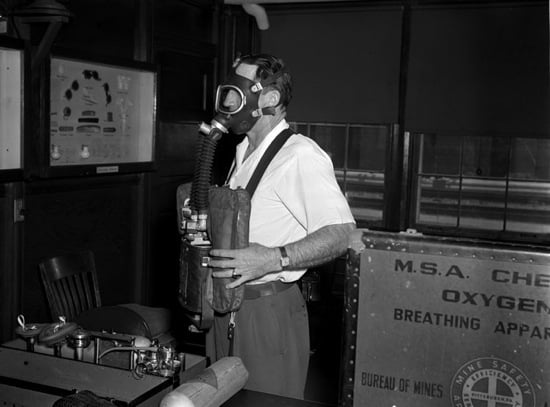
As I alighted on the pavement at my destination, two youths emerged from the door of the establishment carrying an iron cylinder, which, with some trouble, they hoisted into a waiting motor-car. An elderly man was at their heels scolding and directing in a creaky, sardonic voice. He turned towards me. There was no mistaking those austere features and that goatee beard. It was my old cross-grained companion, Professor Summerlee.
“What!” he cried. “Don’t tell me that you have had one of these preposterous telegrams for oxygen?”
I exhibited it.
“Well, well! I have had one too, and, as you see, very much against the grain, I have acted upon it. Our good friend is as impossible as ever. The need for oxygen could not have been so urgent that he must desert the usual means of supply and encroach upon the time of those who are really busier than himself. Why could he not order it direct?”
I could only suggest that he probably wanted it at once.
“Or thought he did, which is quite another matter. But it is superfluous now for you to purchase any, since I have this considerable supply.”
“Still, for some reason he seems to wish that I should bring oxygen too. It will be safer to do exactly what he tells me.”
Accordingly, in spite of many grumbles and remonstrances from Summerlee, I ordered an additional tube, which was placed with the other in his motor-car, for he had offered me a lift to Victoria.
NEXT WEEK: “And there was Challenger to meet us. His appearance was glorious. Not all the turkey-cocks in creation could match the slow, high-stepping dignity with which he paraded his own railway station and the benignant smile of condescending encouragement with which he regarded everybody around him.”
RADIUM AGE SCIENCE FICTION: “Radium Age” is HILOBROW’s name for the 1904–33 era, which saw the discovery of radioactivity, the revelation that matter itself is constantly in movement — a fitting metaphor for the first decades of the 20th century, during which old scientific, religious, political, and social certainties were shattered. This era also saw the publication of genre-shattering writing by Edgar Rice Burroughs, Sax Rohmer, E.E. “Doc” Smith, Jack London, Arthur Conan Doyle, Aldous Huxley, Olaf Stapledon, Karel Čapek, H.P. Lovecraft, Charlotte Perkins Gilman, Yevgeny Zamyatin, Philip Gordon Wylie, and other pioneers of post-Verne/Wells, pre-Golden Age “science fiction.” More info here.
HILOBOOKS: The mission of HiLoBooks is to serialize novels on HiLobrow; and also, as of 2012, operating as an imprint of Richard Nash’s Cursor, to reissue Radium Age science fiction in beautiful new print editions. So far, we have published Jack London’s The Scarlet Plague, Rudyard Kipling’s With the Night Mail (and “As Easy as A.B.C.”), Arthur Conan Doyle’s The Poison Belt, H. Rider Haggard’s When the World Shook, Edward Shanks’s The People of the Ruins, William Hope Hodgson’s The Night Land, and J.D. Beresford’s Goslings. Forthcoming: E.V. Odle’s The Clockwork Man, Cicely Hamilton’s Theodore Savage, and Muriel Jaeger’s The Man with Six Senses. For more information, visit the HiLoBooks homepage.
READ: Jack London’s The Scarlet Plague, serialized between January and April 2012; and Rudyard Kipling’s With the Night Mail (and “As Easy as A.B.C.”), serialized between March and June 2012.
ORIGINAL FICTION: HILOBROW has serialized three novels: James Parker’s The Ballad of Cocky The Fox (“a proof-of-concept that serialization can work on the Internet” — The Atlantic) and Karinne Keithley Syers’s Linda Linda Linda. We also publish original stories and comics.
